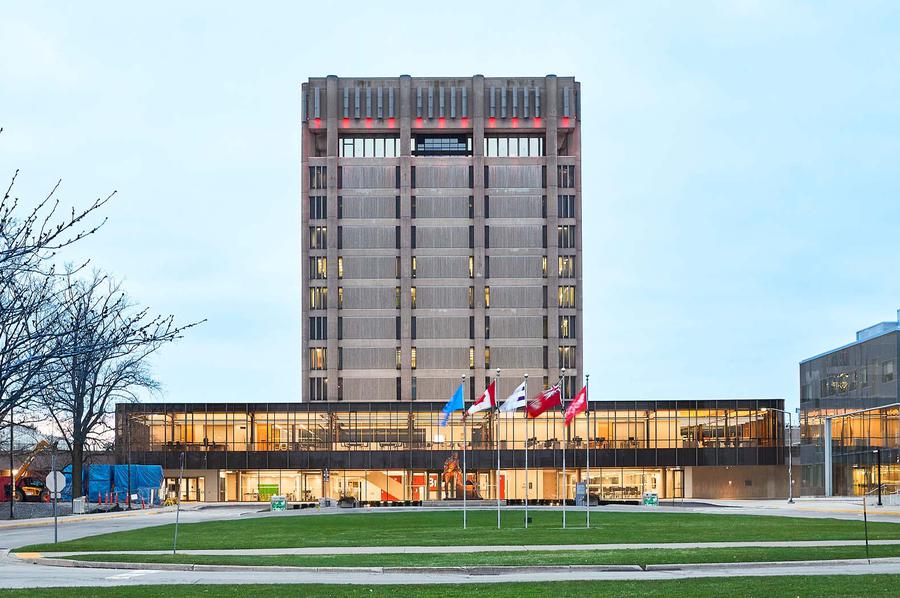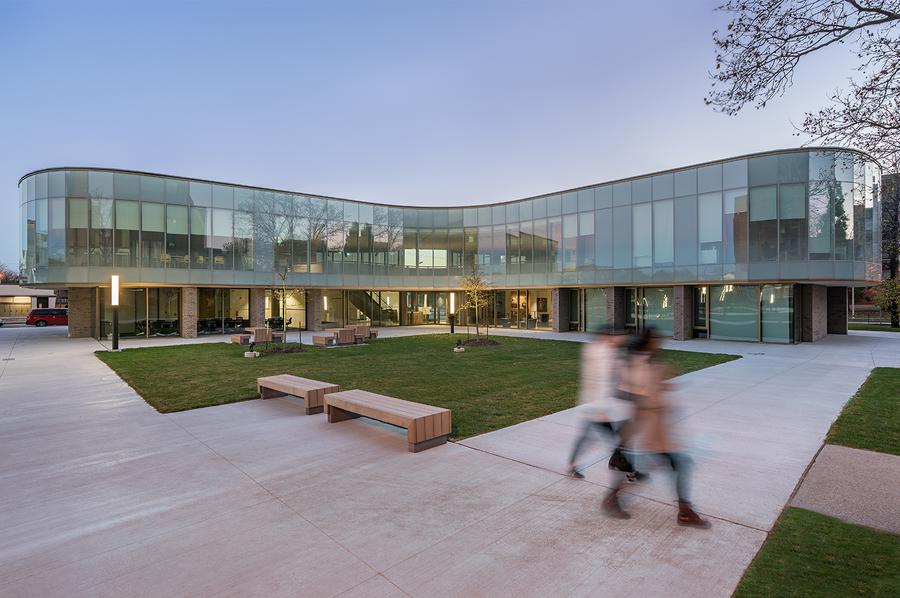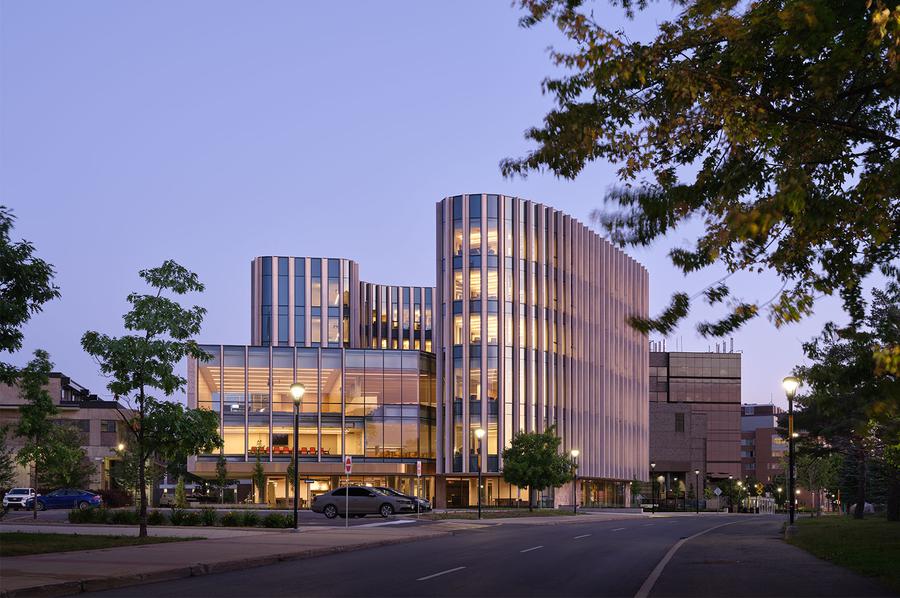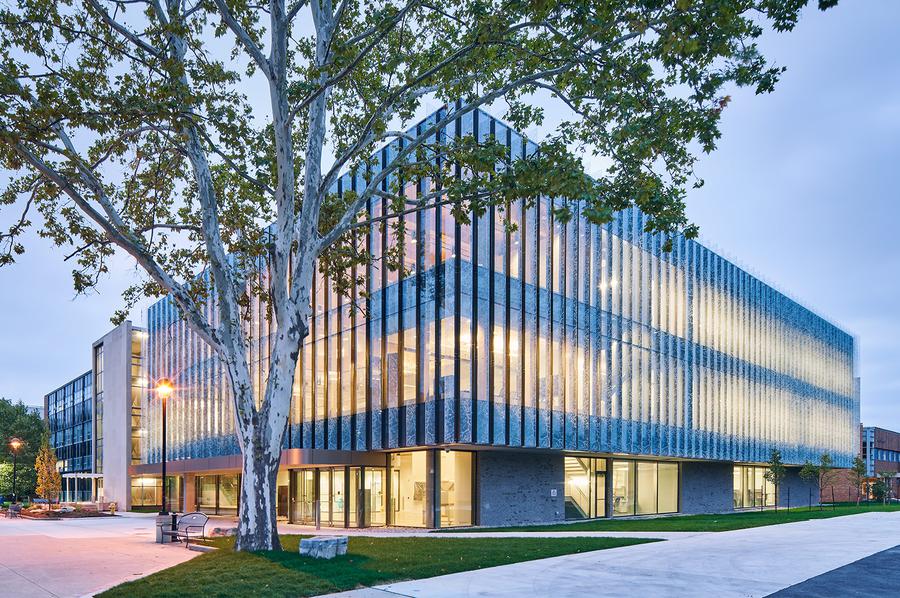Project Facts
JV
Young+Wright / IBI Group Architects
Client
University of Waterloo & McMaster University
Location
Kitchener, ON
Status
Completed 2009
Size
161,000 Sq. Ft.
Partner
The University of Waterloo’s School of Pharmacy, Phase I of the Integrated Health Sciences Campus, establishes a gateway to downtown Kitchener in a hybrid medical campus designed to challenge preconceived ideas of siloed research and patient care. A dual experiment in pedagogy and city building, the plan of the structure, which includes an eight-storey tower, facilitates collaborative learning. Crafted with local limestone, copper, and recycled wood, the corner building contains faculty and student laboratories, lecture and seminar rooms, and an auditorium.
In 2003, the City and the University formed a private public partnership to offer quality pharmaceutical education and services to the community in a hybrid health sciences campus, built on city-owned property. Today, the School of Pharmacy sets a precedent as an innovative, integrated approach to education, primary healthcare facility design, and urban regeneration.
Phase II of the Integrated Health Sciences Campus, the Michael G. DeGroote School of Medicine for McMaster University, houses a family clinic and commercial pharmacy. Day-to-day School activities revolve around a courtyard and central fireplace which provide interactive spaces for relaxed exchanges among students and faculty.
Project Facts
JV
Young+Wright / IBI Group Architects
Client
University of Waterloo & McMaster University
Location
Kitchener, ON
Status
Completed 2009
Size
161,000 Sq. Ft.
Partner
Select Awards
2011 – Ontario Association of Architects (OAA) Design Excellence Award
2010 – Design Exchange Silver Medal—Architecture, Commercial
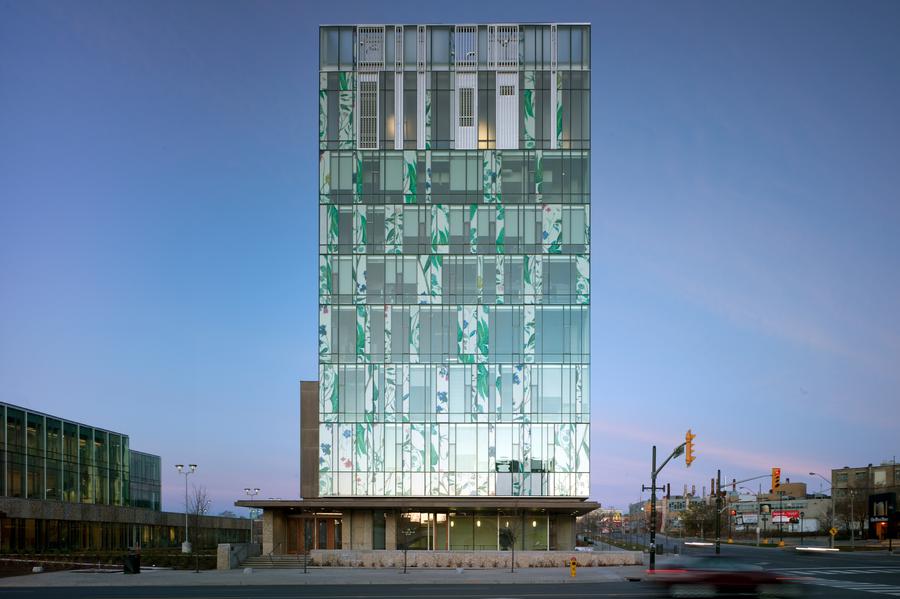
Custom designed glass panels on the exterior elevations showcase plants that are featured in the School’s medicinal garden, supporting a holistic approach to pharmaceutical research and study. The curtain wall not only conveys the history of Pharmacy, but it enlivens the streetscape and reduces sunlight penetration, controlling solar heat gain.
Custom designed glass panels on the exterior elevations showcase plants that are featured in the School’s medicinal garden, supporting a holistic approach to pharmaceutical research and study. The curtain wall not only conveys the history of Pharmacy, but it enlivens the streetscape and reduces sunlight penetration, controlling solar heat gain.
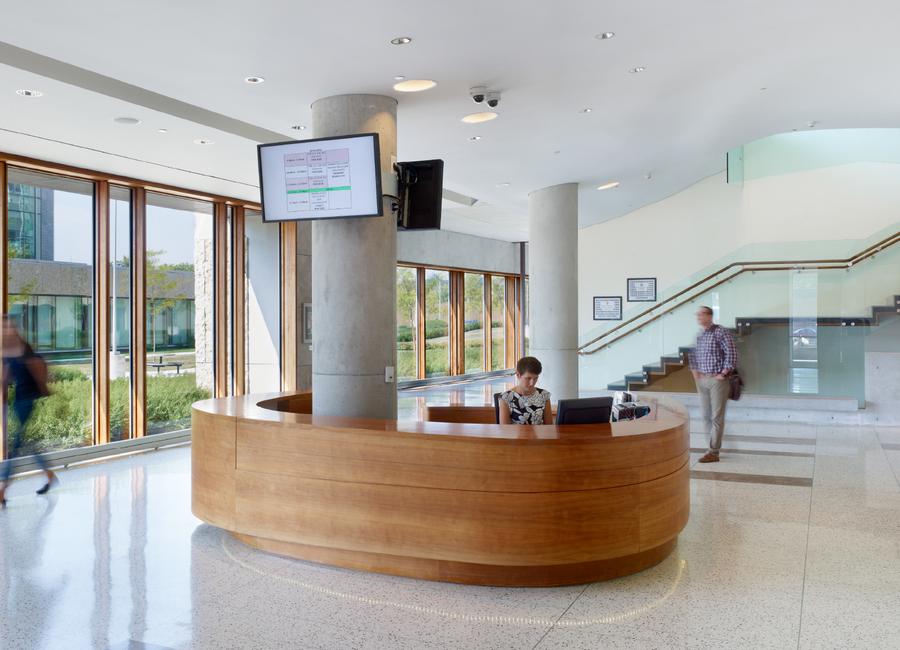
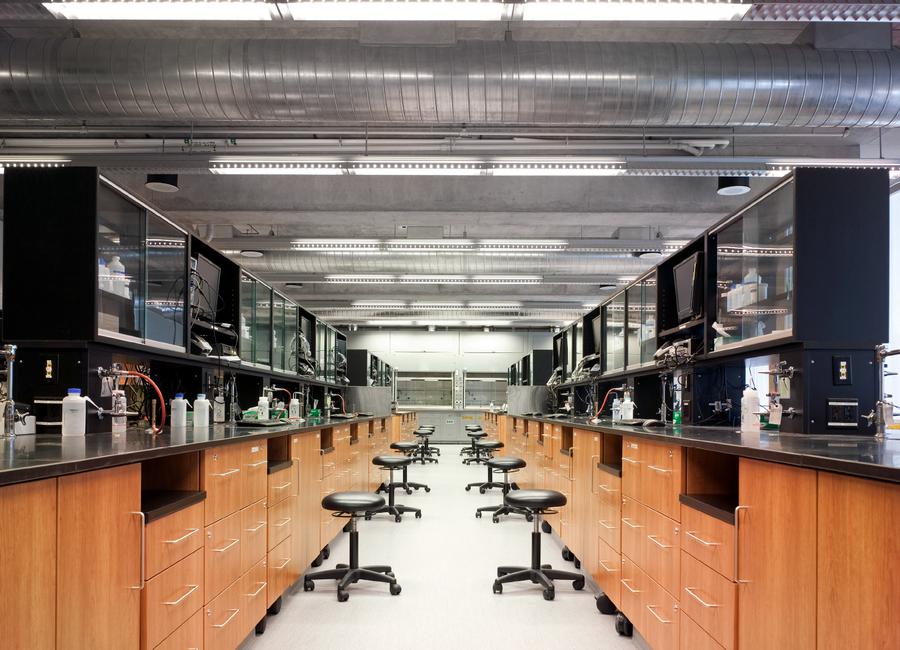
“The HP-Architectural team has created a facility that adds distinction not only to the City, but has captured the intention nationally. The impression gained by all is that the exterior and interior exhibit unity that reflects excellence in appearance and function.”
—Dr. Jake Thiessen, Founding Director, School of Pharmacy, University of Waterloo
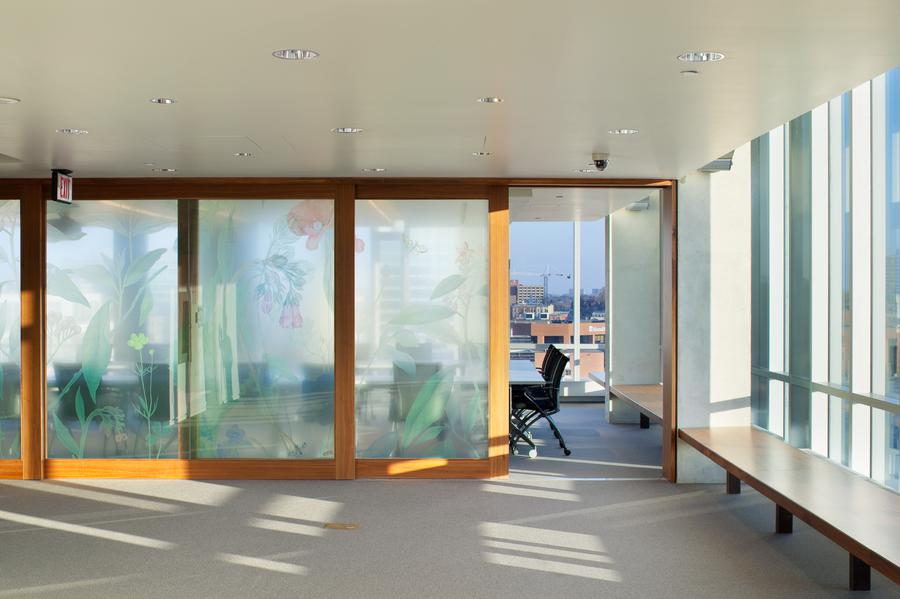
“The HP-Architectural team has created a facility that adds distinction not only to the City, but has captured the intention nationally. The impression gained by all is that the exterior and interior exhibit unity that reflects excellence in appearance and function.”
—Dr. Jake Thiessen, Founding Director, School of Pharmacy, University of Waterloo
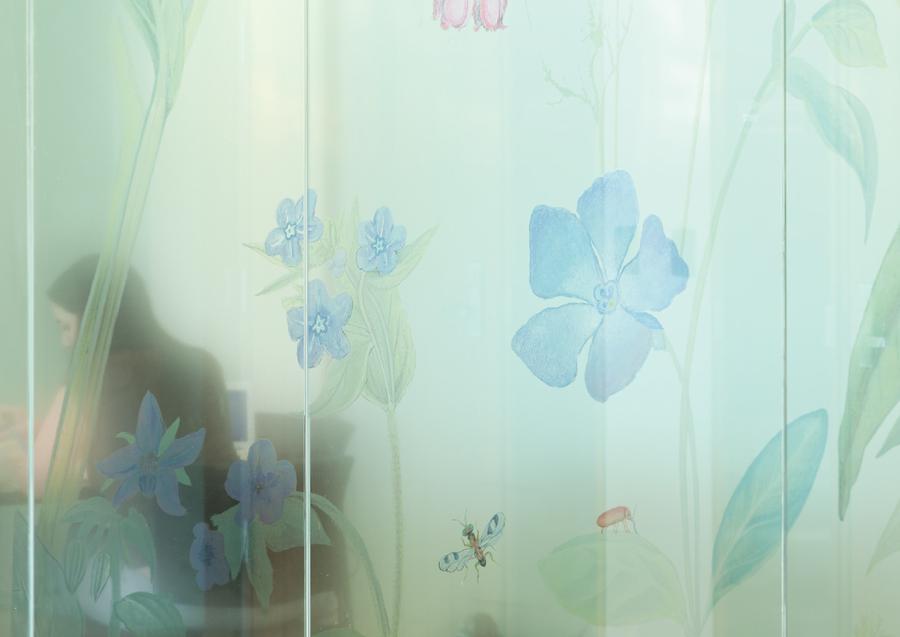
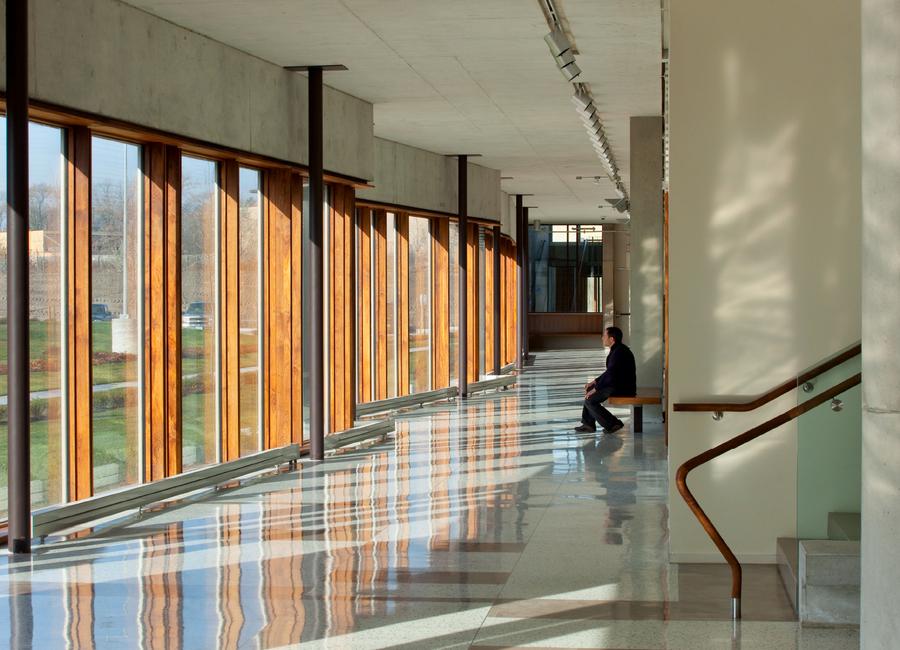
The locally sourced interior finishes were carefully chosen to meet the needs of School. Finished with recycled wood flooring, Algonquin limestone, and copper detailing, the building features expansive corridors, light-filled spaces, and high ceilings that provide a warm welcome to students and faculty.
The locally sourced interior finishes were carefully chosen to meet the needs of School. Finished with recycled wood flooring, Algonquin limestone, and copper detailing, the building features expansive corridors, light-filled spaces, and high ceilings that provide a warm welcome to students and faculty.
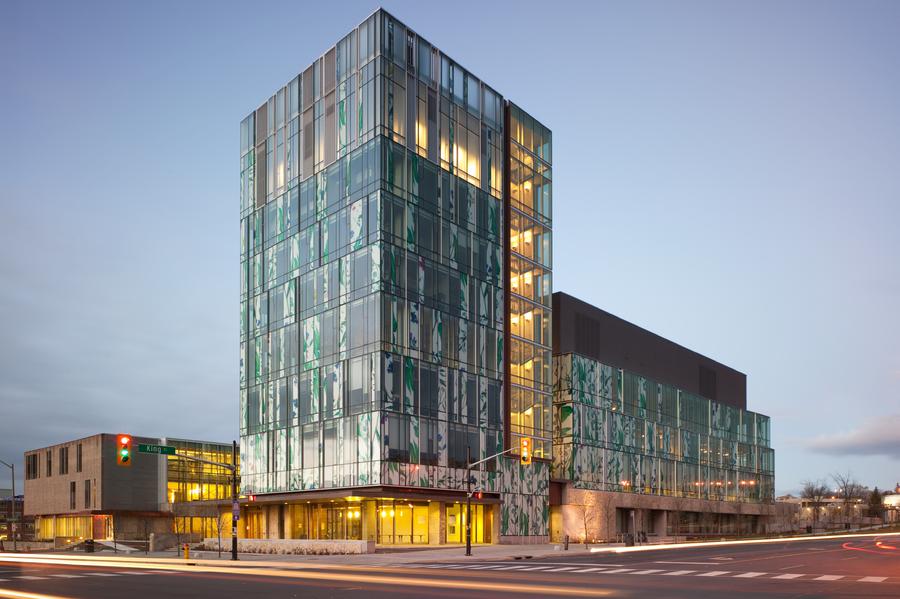
The Michael G. DeGroote School of Medicine is Phase II of the University of Waterloo’s Integrated Health Science Campus.
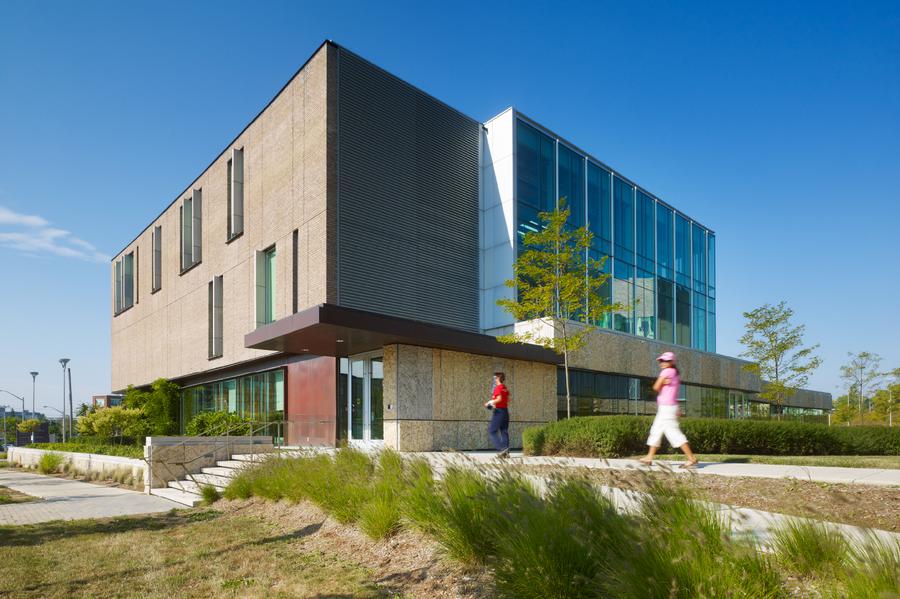
The Michael G. DeGroote School of Medicine is Phase II of the University of Waterloo’s Integrated Health Science Campus.
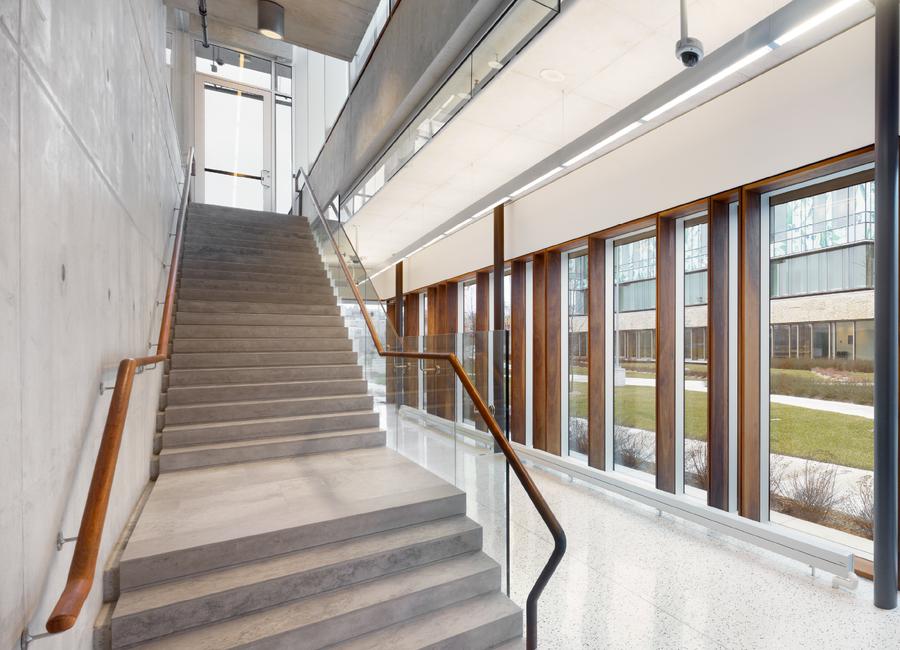
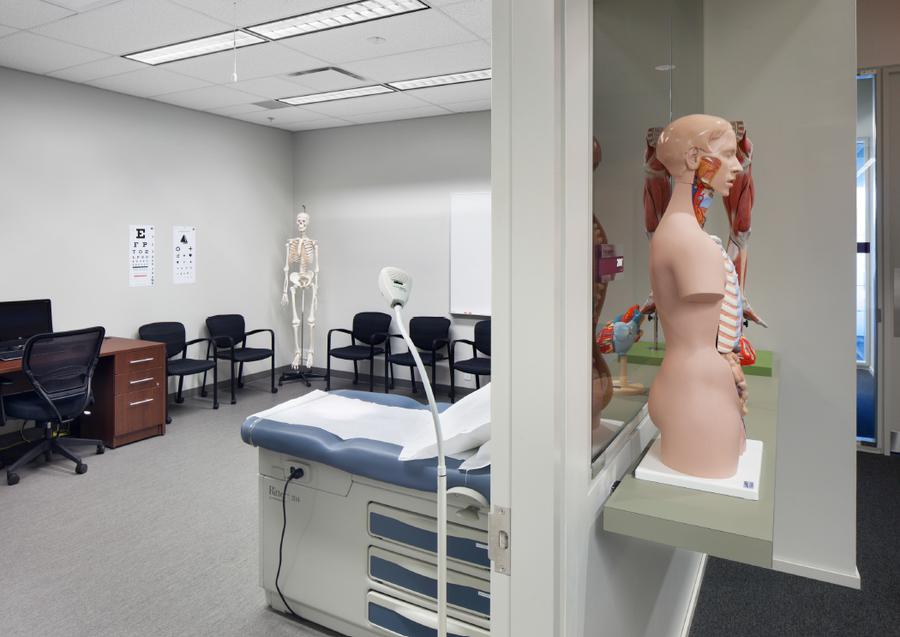
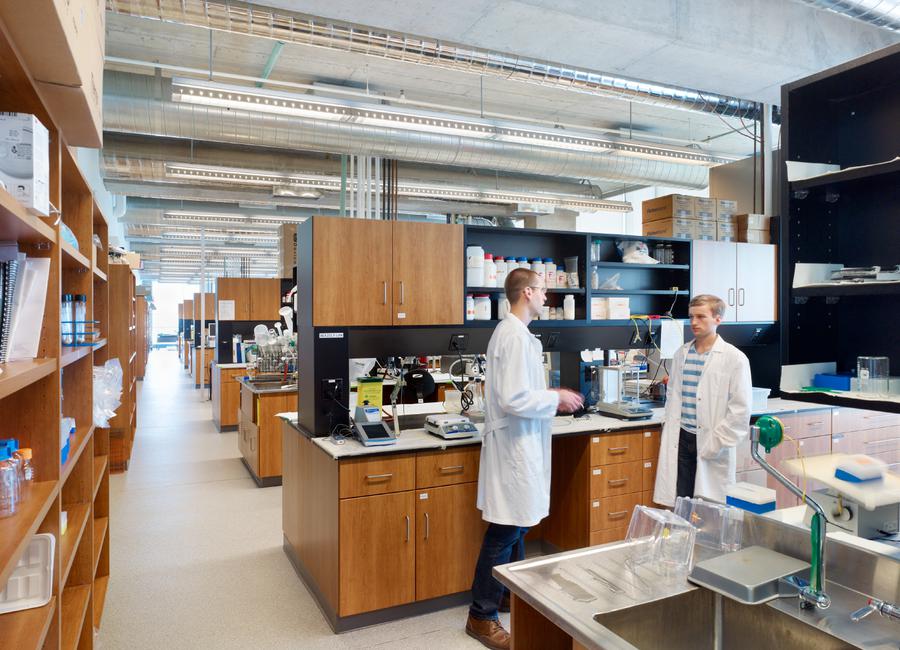
The interior layout was planned to facilitate interaction; for example, the nurses’ station pinwheel form maximizes space and relates to the surrounding examination rooms. Classrooms and offices constitute the remainder of three-storey building.
The interior layout was planned to facilitate interaction; for example, the nurses’ station pinwheel form maximizes space and relates to the surrounding examination rooms. Classrooms and offices constitute the remainder of three-storey building.
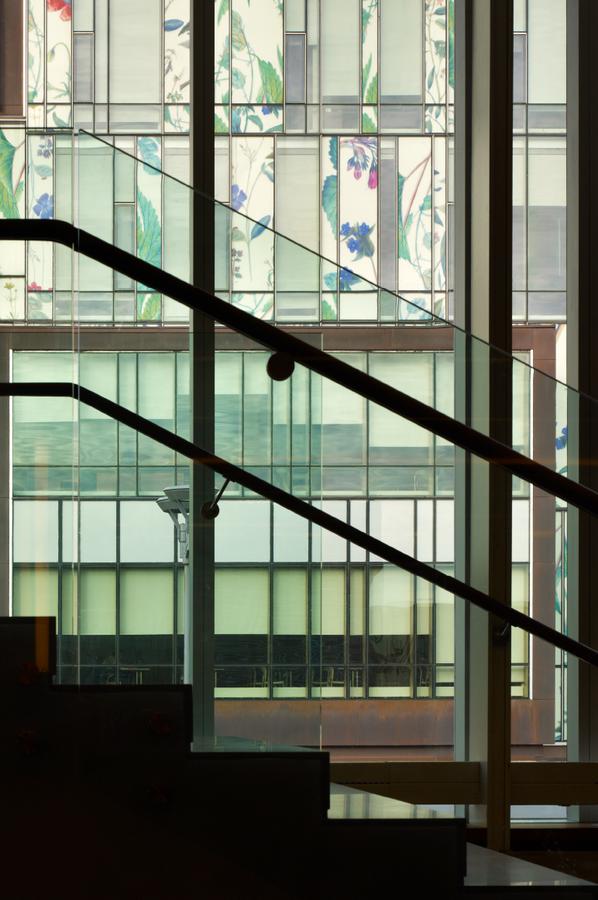

The School of Medicine’s subdued design contrasts with its landmark neighbour, the School of Pharmacy. The brick mass of the façade visually anchors the corner of the site and seems to hover over the large glass windows of the first storey. Positioned at the edge of the revitalizing warehouse district, the Campus provides community benefit and serves as a gateway to downtown Kitchener.

The School of Medicine’s subdued design contrasts with its landmark neighbour, the School of Pharmacy. The brick mass of the façade visually anchors the corner of the site and seems to hover over the large glass windows of the first storey. Positioned at the edge of the revitalizing warehouse district, the Campus provides community benefit and serves as a gateway to downtown Kitchener.
Select Awards
2011 – Ontario Association of Architects (OAA) Design Excellence Award
2010 – Design Exchange Silver Medal—Architecture, Commercial
